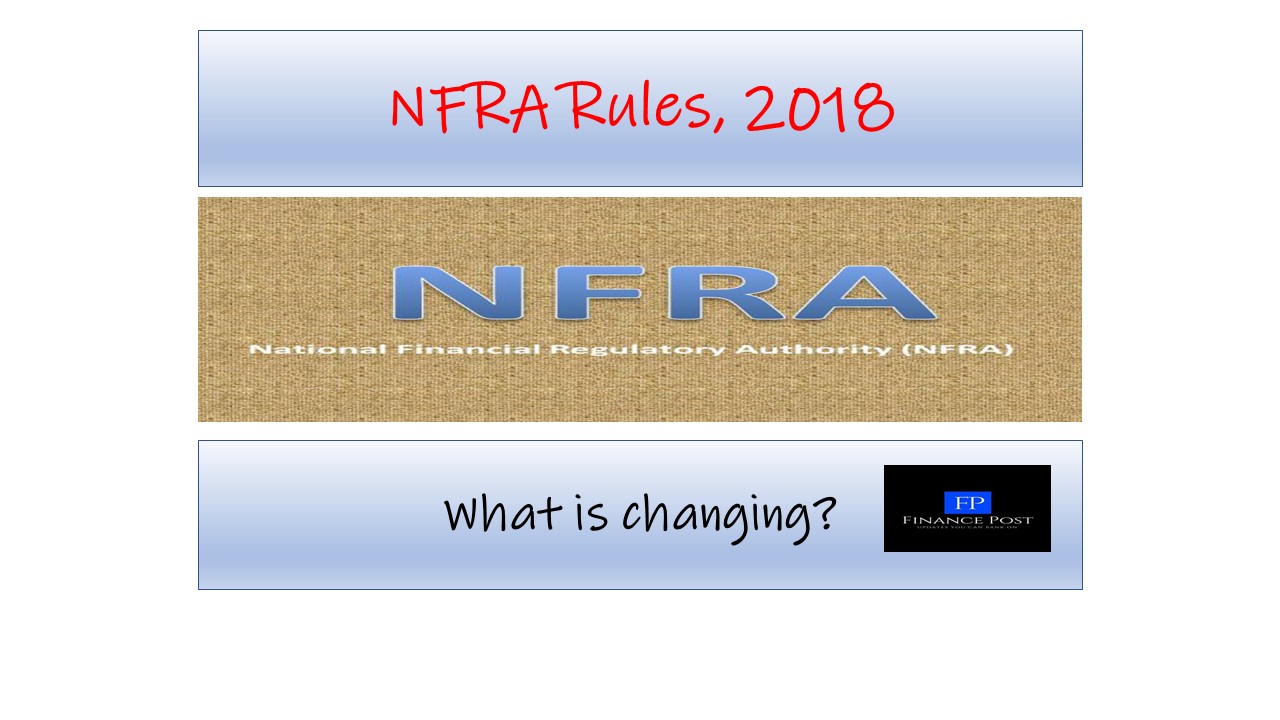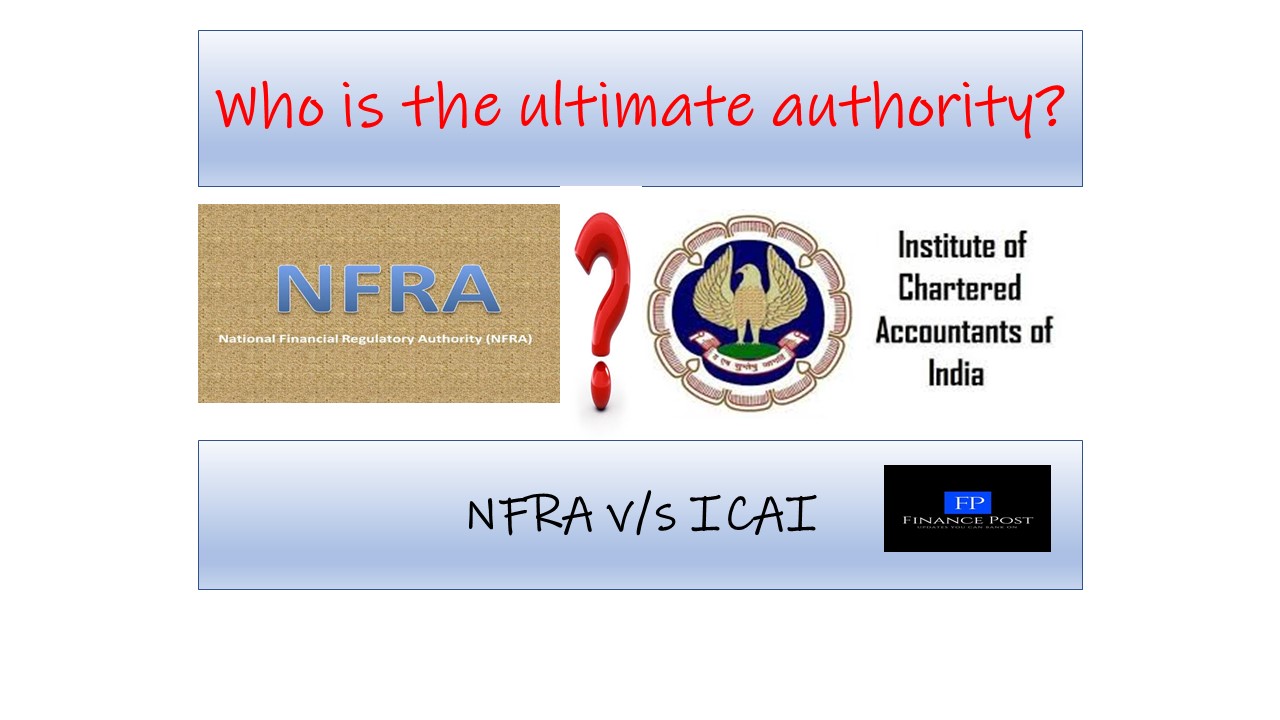
Last updated on May 9th, 2021 at 01:41 pm
NFRA Rules, 2018: What is changing?
On 13th November 2018, the Ministry of Corporate Affairs (MCA) notified “National Financial Reporting Authority (NFRA) Rules, 2018”. (click here to know more about NFRA and its conflict with ICAI)
The Rules clarified the provisions regarding the jurisdiction, function, and duties of the NFRA and its powers. It also specified the provisions related to the non-compliance of the accounting standards and how the non-compliance will be managed.
Key provisions of NFRA Rules, 2018
The NFRA shall have the following powers
⊗ To monitor and enforce compliance with accounting standards and auditing standards,
⊗ Oversee the quality of service of auditors or
⊗ Undertake an investigation of the auditors of the companies
NFRA Rules will govern the following class of companies and body corporate
⊗ Companies whose securities are listed on any stock exchange in India or outside India;
⊗ Unlisted companies with a paid-up capital of Rs 500 crore or more; or an annual turnover of Rs 1,000 crore or more; or outstanding loans, debentures, and deposits of Rs 500 crore or more as on 31st March of the previous financial year
⊗ Insurance companies, banking companies, companies engaged in the generation or supply of electricity, companies governed by any special Act for the time being in force, or bodies corporate incorporated by this Act
⊗ Any body corporate or company or person, or any class of bodies corporate or companies or persons, on a referred by the Central Government in the public interest, and
⊗ Large offshore subsidiaries and associates of the above companies provided their income or net worth exceeds 20 % of the income or net worth of the parent
⊗ Every existing body corporate other than a company governed by these rules and large offshore subsidiaries mentioned above will file Form NFRA -1 informing the details of the auditors within 30 days.
⊗ Auditors need to file an Annual return with NFRA.
The functions of NFRA primarily comprise of the following
⊗The basic function of NFRA is to protect the public interest and interest of investors, creditors, and others. For this, the NFRA will establish high-quality accounting standards and audit policies.
⊗ NFRA will also monitor the compliance of these standards and auditing policies
⊗ To monitor the compliance, the NFRA may review the financial statements of such a company, and if required will call for further information, explanations, and documents from the company or the auditors.
The powers entrusted with NFRA include:
⊗ Ensuring the quality of service of auditors by monitoring them
⊗ Investigating into any matter on the basis of its compliance or oversight activities,
⊗ Taking disciplinary proceedings against a company/auditor for non-compliance
Click here to read the Rules as notified in detail
Related Posts
- How to do a transaction in Digital Rupee (CBDC-R)? – A Step by step Guide - 10/12/2022
- Can you rectify your 26AS? - 20/09/2022
- Tax implications on Cashback - 09/09/2022
Disclaimer: The above content is for general info purpose only and does not constitute professional advice. The author/ website will not be liable for any inaccurate / incomplete information and any reliance you place on the content is strictly at your risk.
Follow us on Social Media by clicking below
Follow @financepost_in
Be the first to comment